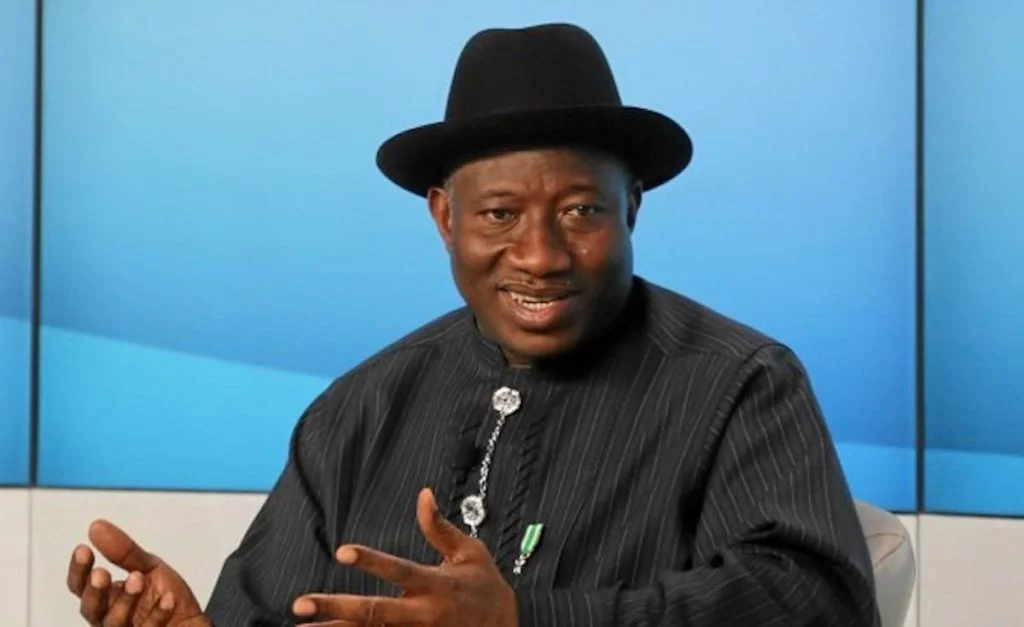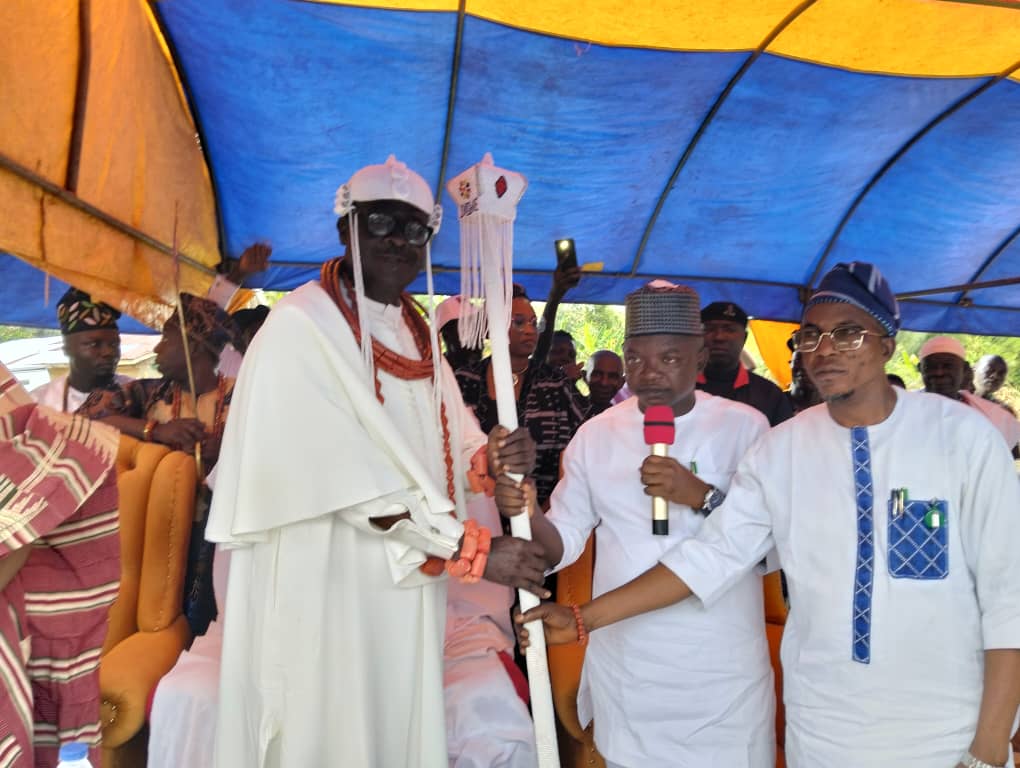News
Why INEC Vote Count Can’t Be Accurate, Says Jonathan

Former President Goodluck Jonathan on Tuesday said the nation was not getting accurate vote counts during elections due to the involvement of those he described as ‘ghost voters.’
He also said it is better and more honourable for the chairman and other officials of the Independent National Electoral Commission to resign rather than yield to pressure to manipulate elections.
Jonathan made the assertion at the YIAGA Africa Reflection Conference on Democratic Elections in West Africa held in Abuja.
According to the ex-leader, the nation’s electoral system will continue to grapple with a credibility crisis, until there are men of integrity in INEC, who will rather resign than succumb to pressure to rig polls.
Jonathan said, “In Nigeria, you can’t get an accurate count of votes because I believe that we have too many ghost voters.
“We must have credible people. From what (ex-INEC Chairman, Attahiru) Jega said, political leaders who are so domineering will pressurise you to do what is wrong; you should be able to resign and leave. You should be able to resign and walk away, please.
“If we don’t have this kind of people, then we are in trouble. And I don’t want any INEC official to say I was pressurised. If you are accepting to be Chairman of INEC or to be a commissioner of INEC, then you should be ready to say, ‘If I’m pressurised to do what is wrong, I will take care of the democratic people and walk away’.
‘’And if we don’t have such people managing our electoral management bodies, if what we have are people who will continue to go in a circle, we will not get what we want.”
The former President emphasised that without strong and ethical leadership in electoral management, the electoral system would remain flawed.
He called for a robust electoral system that works to ensure credible elections.
READ ALSO: INEC Chair Commends Ghana’s Election
“When both parties are strong, and the system cannot be manipulated, only real human beings will cast and their votes will count,” he affirmed.
Jonathan also criticised the regionalisation of the electoral process, stating that it is a major hindrance to Nigeria’s desire to elect capable leaders.
He noted that regionalisation has deeply infiltrated the system, affecting all facets, including religious groups.
“Sometimes, if I listen to the prediction by religious men and women and so on, their predictions tend to go towards the regional interest. So, when the electoral process is so regionalised, we are going to have issues. And that will be controlled by de-emphasising sort of key areas.
“If our systems of electing our leaders are not fine-tuned to the level that the voter card will work, then what will be so great about democracy?” Jonathan queried.
He stressed the importance of improving the voter registration system and electoral processes to ensure that democracy functions effectively.
“If our systems for electing leaders are not fine-tuned, then what is the point of democracy?” he questioned.
Jonathan added that Nigeria must set an example by conducting clean and peaceful elections as a country wielding so much influence in the West African sub-region.
He recalled the logistical issues, delayed voting in some areas, violence and technical glitches that marred the 2023 general elections despite the introduction of the Bimodal Voter Accreditation System and the Results Viewing Portal by INEC to enhance transparency.
Jonathan also pointed to the challenges confronting elections in Sierra Leone and Senegal, where allegations of irregularities, including voter intimidation, ethnic tensions and controversial results undermined the polls.
READ ALSO: IGP, Jonathan Disagree Over State Police
He added, ‘’Late last year, Ghana conducted general elections which were indeed successful, despite the application of limited technology. The country, with a reputation of being one of Africa’s most stable democracies, lived up to this billing by conducting peaceful polling and smooth transfer of power.
“The Electoral Commission of Ghana and the security authorities played a crucial role in ensuring the elections were free, fair, and transparent, thereby demonstrating that Ghana’s democratic institutions and processes have continued to be resilient, even with limited technology.
“Two other countries, Liberia and Senegal also conducted general elections with limited deployment of technology. In these countries, the processes were generally peaceful, transparent and credible with a high voter turnout.
‘’In the case of Liberia, incumbent President George Weah conceded defeat to the opposition candidate Joseph Boakai after a closely contested runoff, setting a positive example for democratic transitions in the region.
‘’The pre-election period in Senegal was notably marred by protests, arrests of opposition figures, and concerns about the independence of the judiciary. However, it was pleasing to observe that once the election process kicked in, the polling processes progressed without hitches, resulting in a free and fair outcome.’’
He observed that the high voter turnout in Liberia, Senegal and Ghana as well as a peaceful transition of power in these countries demonstrated public enthusiasm for democratic participation and consolidation.
‘’It is instructive that in countries where more technology was deployed, like Nigeria and Sierra Leone, the electoral process threw up more agitations, legal battles and political tensions.
‘’This development, therefore, underscores the place of the human element in deepening the roots of democracy. It shows that the deployment of technology, no matter how elaborate or sophisticated, may not deliver the desired outcomes without the proven will of the authorities and the citizens to do the right thing,’’ he noted.
He called for sustained progress in democracy within the Economic Community of West African States to foster hope among citizens.
Jonathan commended West Africa’s democratic progress despite recent setbacks, referencing the coups in Mali, Burkina Faso, and Niger Republic.
READ ALSO: SERAP Drags INEC To Court Over Uninvestigated Electoral Offences In 2023 Elections
He noted, “Although some nations have regressed to military rule, West Africa has largely transitioned from the dark days of pervasive military rule to a region where elections are the primary means of transferring power.
‘’Still, I believe we have made incremental progress. It is clear that West Africa has largely transitioned from the dark days of pervasive military rule and authoritarian regimes to a region where elections are now held routinely as the primary means of transferring political power.
‘’The fact that the military regimes are now treated as an aberration within the Economic Community of West African States speaks eloquently to this progression and highlights the resilience and determination of our people to embrace democracy as a way of life.
‘’This is, indeed, a clear departure from the not-so-distant past when many nations in the sub-region experienced long spells of political instability or military dictatorship with some of the leaders even playing an active role in the formation of ECOWAS in 1975.’’
He advocated robust youth participation in the electoral process, strong and independent electoral institutions and electoral reforms as well as efficient use of technology.
‘’There is no doubt that the future of democracy in Africa lies in addressing the root causes of instability, including poverty, inequality, and climate change.
‘’Political leaders and citizens alike must commit to promoting good governance and a culture of tolerance, inclusion, dialogue, and peaceful coexistence,’’ he further advised.
The former INEC Chairman, Prof. Attahiru Jega, in his keynote address, highlighted persistent challenges limiting democratic development in West Africa.
“Political interference in the appointment (and/or removal) of electoral commissioners and other electoral management body officials; intimidation/targeting of electoral officials to ensure desired outcomes; obstruction of legal reforms to extend EMB powers (for example to strengthen oversight of campaign finance) or more broadly provide for more inclusive electoral processes.
“Introduction of rules that enable fraud or manipulation, for example through weak regulations around registration or voting procedures, or strategic changes to electoral laws which significantly favour incumbents
“The withholding of funds and other resources from electoral operations and attempts to discredit the EMB,” Jega stated.
(PUNCH)
News
PHOTOS: New Era In Furupagha-Ebijaw As Okpururu 1 Receives Staff Of Office

It was an atmosphere of excitement and display of culture and unity in Ebijaw community, Odigbo Local Government Area of Ondo State, as the state governor, Lucky Aiyedatiwa, formally presented Instrument of Appointment and Staff of Office to His Royal Majesty (Pere), Meus Tunde Ditoru-Muje, Opu-Ugo, Okpururu 1, the Ibediowei of Furupgha-Ebijaw Kingdom.
The ceremony, which attracted government officials, traditional rulers and royal fathers from within and outside the local government, also had in attendance the Ibe and Amaokosuowei (oldest man in the kingdom), Pa Emmanuel Odushu, and dignitaries from the over 17 communities under the kingdom.

In his speech, Governor Aiyedatiwa reminded the new King that he is a father to all the people in his domain, and that he should: “bear in mind that the responsibility to lead the kingdom to a greater level of social and economic progress now lies squarely on your shoulders.”
The governor, who was represented by the Commissioner for Local Government and Chieftaincy Affairs, Alhaji Amidu Takuro, while reminding traditional rulers in the state that the government will not tolerate any chieftaincy appointments by traditional ruler without the state government’s approval particularly on disputed territories, prayed God to “help your Royal Majesty to succeed in this new task of traditional leadership.”

READ ALSO:Court Dissolves Petitioner’s Marriage Over Lack Of Love, Care
Earlier, in his welcome speech, Odigbo Local Government Council Executive Chairman, Hon. Adegoroye Taiwo, while urging the Pere and “his Traditional Chiefs to work in promoting peaceful coexistence, harmony, and enduring development in your respective domains,” appealed to HRM to “carry everyone along, have the heart of forgiveness. As a traditional ruler everyone belongs to you. So work with them.”
In his speech, the Okpururu 1 thanked the governor and the state government for recognising the Furupgha-Ebijaw traditional throne for the first time after decades, noted that “this singular act has wiped away decades of longing, restored the dignity of our people, and written our name boldly in the annals of history.”

“For the first time since the founding of this community by our forefathers, our traditional institution has been formally recognised by the Government of Ondo State with the presentation of a Staff of Office.
“By this recognition, your administration has demonstrated fairness, inclusiveness, and respect for tradition. You have listened to the voice of history, justice, and the aspirations of our people, and for this, we shall remain eternally grateful.”

READ ALSO:My Wife Dented My Image, Took Our Marital Crises To Radio Stations — Husband
HRM, pledged to “rule with wisdom, fairness, and transparency, to promote peace and unity among our people, and to work closely with the government at all levels to advance development, security, and prosperity in our land.”
The Pere, while acknowledging that the “Staff of Office is not merely a symbol of authority; it is a symbol of identity, unity, and hope,” said “It affirms our heritage, strengthens our cultural values, and reinforces the role of the traditional institution as a partner in governance, peace-building, and grassroots development.”

He assured the governor of ruling with “utmost humility, fear of God, and total commitment to service.”
He called on sons and daughters of the kingdom “to rally together, put aside differences, and join hands with the traditional institution and government to move our community forward,” stressing that “this achievement belongs to all of us.”

The Pere seized the occasion to draw the attention of the governor to challenges such as unavailable of motorable roads, lack of electricity and potable water, and perennial flooding and erosion in communities under the kingdom.


News
Edo SWAN Distances Self From Online Publication Against Enabulele

…demands retraction, warns member against unverified publication
The Sports Writers Association of Nigeria (SWAN), Edo State Chapter, has distanced itself from an online publication titled: ‘Samuel Ogbemudia Stadium Shut Against Stephen Keshi.’
A statement signed by the Secretary of the association, Comrade Idahosa Moses, Edo SWAN said neither was it consulted nor involved in the “framing of the narrative presented by the online publication.”
Edo SWAN described the publication as misleading, sensational and grossly lacking in factual balance.
The statement partly reads: “SWAN finds the report inconsistent with the ethical standards and core values of the journalism profession.
READ ALSO:SWAN Orders Nationwide Boycott Of NFF Activities
“While Edo SWAN recognises and respects the sentiments expressed by Mr. Austin Popo, Secretary of the Board of Trustees of the Stephen Keshi Football and Vocational Training Centre (SKFTVC), concerning the challenges encountered in securing the use of the Samuel Ogbemudia Stadium for this year’s Stephen Keshi Memorial National Under-17 Soccer Tournament, it is imperative to state that such concerns should not be reported in a manner that imputes motives, assigns blame without verification, or portrays public officials as acting in bad faith.”
On allegations against the Executive Chairman of the Edo State Sports Commission, Hon. Amadin Desmond Enabulele, in the publication, SWAN described Enabulele as a “seasoned professional with a proven track record of integrity and dedicated service to sports development in Edo State.”
“Any insinuation that he or the Commission deliberately acted to undermine the memory and legacy of the late Stephen Okechukwu Keshi is not only unfair but also unsupported by verifiable facts.”
Edo SWAN, therefore, “strongly cautions the publisher of Popular News to desist from publishing unverified and inflammatory reports capable of misleading the public and damaging reputations.”
READ ALSO:Botswana’s New President Sworn In As Voters Kick Out Ruling Party Of Nearly Six Decades
“The Association formally demands that the controversial publication be withdrawn immediately and that an unreserved apology be tendered to Hon. Amadin Desmond Enabulele.”
SWAN further “extends its sincere apologies to the Chairman of the Edo State Sports Commission, who is also a Patron of the Edo SWAN Chapter, for any embarrassment or misrepresentation arising from the said publication, and assures him of its continued respect, support and cooperation.”
Edo SWAN, while stating that it “shares in the collective responsibility of preserving and honouring the legacy of the late Stephen Keshi—a national icon whose contributions to Nigerian football remain indelible—the Association, maintained that “this noble course must be pursued through constructive engagement, professionalism and mutual respect among all stakeholders.”
Edo SWAN, thereafter, warned “all sports writers in the state to avoid unverifiable reports and sensationalism, stressing that any member found culpable of professional misconduct will be decisively sanctioned in line with the Association’s statutes.”
News
Court Dissolves Petitioner’s Marriage Over Lack Of Love, Care

An Area Court sitting at Centre-Igboro, Ilorin in Kwara State, on Thursday, dissolved the four-year-old marriage between Aminat Mustapha and Wahab Adeshina, following the petitioner’s insistence.
The petitioner told the court that she was no longer interested in her marriage to her husband following claims of lack of love and care.
According to the News Agency of Nigeria (NAN), while delivering ruling, the presiding judge, Mr Toyin Aluko, held that the respondent had written to the court, accepting the divorce application made by his wife.
READ ALSO:Why I Charged My Husband Money For Sex —Woman
Aluko, consequently, dissolved the marriage between the parties, and ordered the woman to observe one month iddah (waiting period) before she could remarry.
Meanwhile, the court granted custody of the two children in the marriage, ages one and three, to their mother.
He ordered the father to pay a monthly sum of N20,000 for the children’s feeding and maintenance.
The court also held that the respondent will be responsible for their education and healthcare.
Again, the court held that the father has unrestricted access to his children, but at reasonable time adding that he should be notified before any decision is taken on his children.
The judge ordered the petitioner to get a copy of the judgment and send same to the respondent.

 Metro5 days ago
Metro5 days agoAlleged Organ Harvesting: Bereaved Families Rush To Check Corpses

 News4 days ago
News4 days agoPolice Confirm Edo Tanker Explosion, say No Casualty

 News3 days ago
News3 days agoFormer Delta North senator Peter Nwaoboshi Dies

 News5 days ago
News5 days agoEdo SSG Calls On Media To Support Govt Policies, Assures Better Welfare

 Metro2 days ago
Metro2 days agoJUST IN: Former Edo Information Commissioner Is Dead

 News4 days ago
News4 days agoGrassroots To Global Podium: Edo Sports Commission Marks Enabulele’s First Year In Office

 News4 days ago
News4 days agoOtuaro Tasks Media On Objective Reportage

 News4 days ago
News4 days agoIPF Hosts Media Conference, Seeks Protection For N’Delta Environment

 News4 days ago
News4 days agoOkpebholo Sympathises With Otaru, People of Auchi Over Tragic Tanker Fire Incident

 News4 days ago
News4 days agoBauchi Govt Sensitises 14,000 LG Staff On Promotion Examination






























